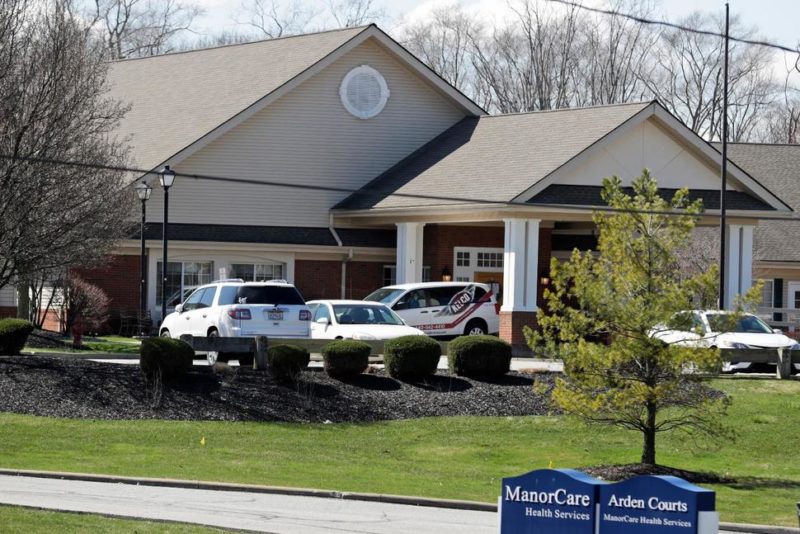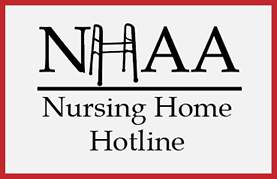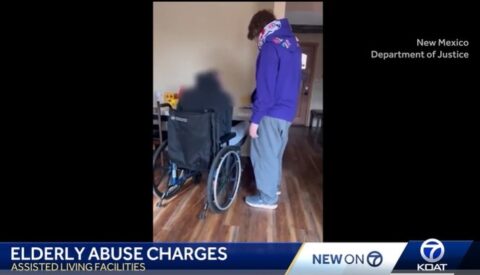In The News:

BY JOHN SEEWER AND ANDREW WELSH-HUGGINS, Associated Press
COLUMBUS, Ohio (AP) — Nursing homes across Ohio have been smacked by the coronavirus, with at least 45 deaths linked to the pandemic. But the overall total isn’t known, and neither are the locations of more outbreaks because many local health departments won’t say.
The lack of statewide information along with the inability to do widespread testing in nursing homes is frustrating some operators. They contend that not knowing how pervasive the virus has become within long-term care facilities is hampering their response.
“We really need to know what are we dealing with here,” said Peter Van Runkle, head of the Ohio Health Care Association, which represents the state’s for-profit nursing homes.
Nursing homes have been locked down for nearly a month since Gov. Mike DeWine banned all visitors to protect elderly residents who are more vulnerable to the virus. That hasn’t stopped it from spreading to those facilities where staff members and specialized health care workers are still coming and going.
Outbreaks at two nursing homes in Miami County near Dayton have left 12 dead and dozens more sick, while another in neighboring Darke County has killed seven nursing home residents. In the Youngstown area, 12 have died from the virus at long-term care facilities.
On Friday, the Wayne County Health Department announced 10 residents and 10 employees at a Wooster nursing home tested positive for the coronavirus, with five of those residents dying.
“Nursing homes are hot spots for this potentially deadly disease,” said Nicholas Cascarelli, Wayne County’s health commissioner.
But many other counties aren’t disclosing any information about their nursing homes. It came as a surprise earlier this week, Van Runkle said, when state health Director Dr. Amy Acton announced the virus had been found at 20 nursing homes in Cleveland and Cuyahoga County.
Not knowing where the outbreaks are happening, he said, could allow the virus to spread if a nursing home happens to hire someone or take in a patient from one of those facilities.
A woman in the Columbus area said her mother was admitted to a nursing home near the end of March without knowing an employee there had tested positive just days earlier. Ann Mayfield told The Columbus Dispatch that her mother left the nursing home less than a week later and soon after was diagnosed with the virus, but it’s not clear where she was infected.
The state is leaving it up to local health agencies to release that type of information and won’t confirm the names of facilities because it doesn’t want to take the chance of revealing the identity of someone who tested positive, said Ohio Department of Health spokeswoman Melanie Amato.
In Stark County, where public health officials are monitoring a cluster of cases at a single nursing home where four patients have died, the policy is to release deaths but not cases.
The other big concern among nursing homes is that testing is being concentrated in hospitals. “We’ve made it very clear to the state that long-term care ought to get higher priority. Right now, they’re second in line,” Van Runkle said.
The problem, according to the state health department, is that there simply aren’t enough to blanket-test everyone in a nursing home.
“The bane of my existence is the fact that we can’t do this,” Acton said. “We have everything set up to do it. We have the ability to do mobile units and go to prisons, and go to nursing homes. We have staff to do it once we have more testing.”
Ohio and its county health departments have been getting tests to where they’re needed even though they seem to be in shorter supply than in other states, said Julie Beckert, a spokeswoman for Toledo-based HCR ManorCare, which operates skilled nursing facilities across the country.
The state has set up “strike teams” to assist local health departments when there are positive tests in nursing homes.
“Where we see that a nursing home is struggling because they don’t have enough gear, the very little bit of gear we have left we’re trying to direct to them,” Acton said. “We’ve been able to sort of squash the hotspots as they occur. Time will tell how well we do in that.”
As of Friday, nearly 5,900 people in Ohio have tested positive for the virus, and 231 have died, according to new federal guidelines that allow cases and deaths considered “probable” COVID-19 infections without a positive test. Positive tests show about 5,800 cases and 227 deaths in Ohio.
Eight Ohio prisons are under full quarantines, with 36 inmates and 58 employees having tested positive. One prison guard died. DeWine said Friday that all inmates in three prisons—Marion Correctional Institution, Franklin Medical Center in Columbus, and Pickaway Correctional Institution in central Ohio—will be tested.
John Seewer reported from Toledo.
Your Experience Matters
...and we want to hear it.
NHAA is here to assist families, residents, and the community by sounding the alarm on issues like those found above. This nursing home and many others across the country are cited for abuse and neglect.
If you have or had a loved one living in this nursing home or any other nursing home where you suspect any form of abuse or neglect, contact us immediately.
We have helped many already and we can help you and your loved one as well by filing a state complaint, hiring a specialized nursing home attorney or helping you find a more suitable location for your loved one.
You can make a difference, even if your loved one has already passed away.
Please give us a call at 1-800-645-5262 or fill out our form detailing your experience.
Personal Note from NHA-Advocates
NHAA shares with all the families of loved ones who are confined to nursing homes the pain and anguish of putting them in the care of someone else. We expect our loved ones to be treated with dignity and honor in the homes we place them. We cannot emphasize enough to family members of nursing home residents; frequent visits are essential to our loved ones’ well-being and safety.
If you are struggling and upset, click here to understand your options, or contact us through our contact form or call our toll free hot line number: 1-800-645-5262.






